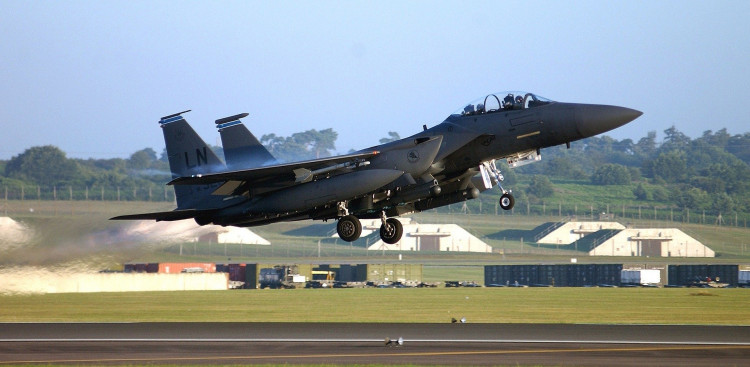The United States' recent airstrikes in Iraq, targeting Iranian-backed militia facilities, have triggered a wave of condemnation from the Iraqi government, exacerbating an already fragile relationship between the two nations. The US Defense Secretary, Lloyd Austin, described these strikes as a "direct response to a series of escalatory attacks" against US and coalition forces, drawing ire from Iraqi officials who view them as a breach of their nation's sovereignty.
In a vehement response, a spokesperson for Iraqi Prime Minister Mohammed Shia al-Sudani stated, "This action blatantly violates the sovereignty of Iraq," adding that it "undermines years of cooperation." The strikes, hitting sites in al-Qaim and Jurf al-Nasr, have raised significant concerns about the potential for further escalation in the region.
The Iraqi Prime Minister's office, in a statement obtained by leading news agencies, emphasized the gravity of the situation: "This unacceptable act contributes to a reckless escalation at a time when the region is grappling with the danger of expanding conflict, particularly given the aggression on Gaza." The reference to the ongoing conflict between Israel and Hamas underscores the interconnected nature of Middle Eastern geopolitics.
The US strikes, carried out by Central Command (Centcom), targeted three facilities associated with the Kataib Hezbollah militia and other Iran-affiliated groups. These groups, according to the US, have been instrumental in the recent spate of attacks on American personnel. In detailing the operation, Centcom stated, "These strikes targeted KH headquarters, storage, and training locations for rocket, missile, and one-way attack UAV capabilities."
However, the reaction within Iraq has been one of stark opposition. Iraqi national security adviser Qassem al-Aaraji, expressing his views on the matter, stated on X (formerly Twitter), "The US should focus on pressuring for a halt to the Israeli offensive in Gaza rather than targeting and bombing the bases of an Iraqi national body."
The escalation comes at a critical juncture, with the US trying to manage multiple fronts in the region. The US military's involvement in Iraq and Syria has been a contentious issue, with numerous attacks on its forces by Iran-aligned fighters since the war in Gaza started in October. These incidents have fed into heightened tensions and concerns about a broader conflict breaking out in the region.
Eduardo Iturralde Gonzalez, a former La Liga referee, criticized Xavi's comments, stating, "Personally, I would ask Xavi these questions: 'Are these the same referees as last year?' Yes. 'Is it the same Referees Committee (CTA) as last year?' Yes. 'Is it the same Real Madrid as last year?' Yes. 'Is it the same Barcelona as last year?' Yes. Well then how did you win La Liga last year?" He added, "Is it that the referees let you win last year, and this year no? Come on, I don't see any conspiracies here, nor anything of the sort. Very unfortunate words."
Defense Secretary Austin, emphasizing the US stance, stated, "We do not seek to escalate conflict in the region. We are fully prepared to take further measures to protect our people and our facilities." He added, "We call on these groups and their Iranian sponsors to immediately cease these attacks."
The situation remains tense as the US continues to navigate its role in a complex and volatile Middle East, balancing acts of self-defense with diplomatic relations with its Iraqi counterparts. The Iraqi government's strong stance against these airstrikes marks a significant moment in US-Iraq relations, potentially influencing future military and diplomatic strategies in the region.




